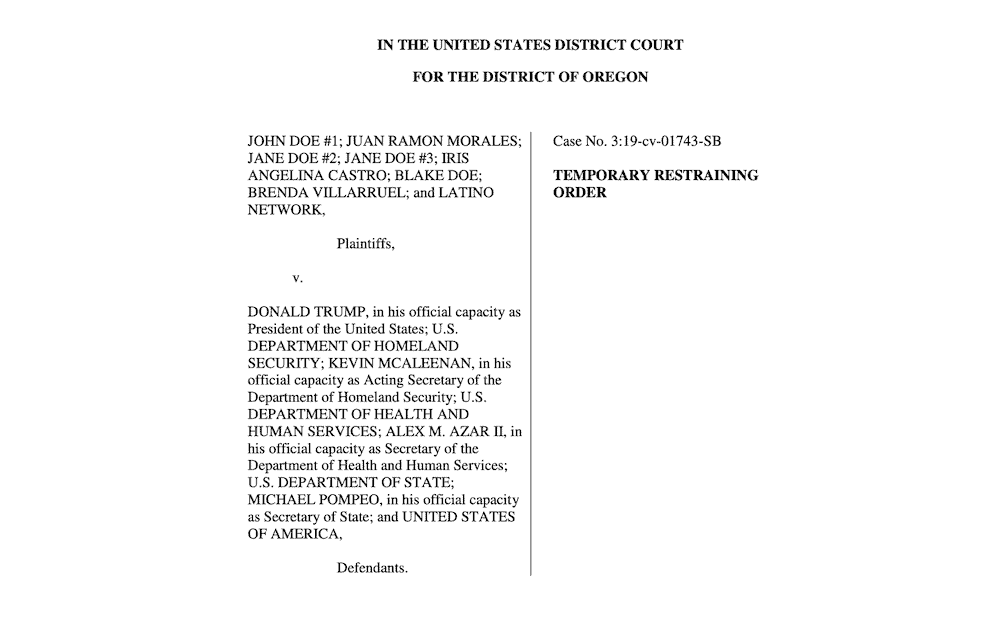In an emergency action, a federal judge today blocked the implementation of President Trump's executive order requiring the denial of immigrant visas and barring foreign nationals without health care coverage or who cannot afford to pay for their medical expenses in the United States from entering the country.
The federal district judge in Oregon, Michael H. Simonissued the temporary restraining order hours before the presidential decree went into effect at 12:01 a.m. on November 3.
The judge's decision was in response to a class action lawsuit filed for the American Immigration Lawyers Association (AILA), the Justice Action Center (Justice Action Center) and the Innovation Law Lab, with pro bono assistance from the law firm Sidley Austin LLP, in which they argue that the rule is arbitrary and an "abuse of discretion" and asked that the proclamation be declared unlawful and enjoined from implementation.
The presidential decree entitled "Presidential proclamation on suspending the entry of immigrants who will financially burden the U.S. health care system." (Presidential Proclamation on the Suspension of Entry of Immigrants Who Will Financially Burden the United States Healthcare System) was issued on October 4, 2019.
On October 30, the U.S. Department of State issued a Notice of Collection of Emergency Review Information (Notice of Information Collection for Emergency Review) in order to implement the presidential proclamation and gave less than 48 hours for public comment on the executive order.
What Judge Simon's order says
Judge Simon issued a temporary restraining order (temporary restraining order) in which he ruled that at the initial stage of the litigation, the parties hademandants demonstrated:
- a substantial likelihood of success on the merits of the claim.
- serious questions on the merits with respect to arguments that President Trump's Proclamation, its implementation plan and execution conflict with the "public charge" regulations in the Immigration and Nationality Act and related federal health care statutes.
- serious questions on the merits regarding whether the Emergency Notice was arbitrary and capricious and, therefore, in violation of the Administrative Procedure Act (APA).
- likelihood that plaintiffs will suffer irreparable harm if there is no temporary relief.
- temporary blocking is in the public interest.
Judge Simon declined to determine for now whether the Emergency Notice also violated the APA's procedural "notice and comment" requirements.
The temporary blocking will last for a maximum period of 28 days. During this time, the litigants will have to present legal arguments as to whether the Court should issue a preliminary injunction staying the implementation and enforcement of the Proclamation until the lawsuit has been resolved on the merits.
Significance of the decision and advice
For the time being, the Trump Administration will not be able to implement the new presidential proclamation. However, the litigation will remain ongoing and the federal government could appeal Judge Simon's decision.
Every immigrant who intends to apply for immigration benefits should be evaluated by an experienced and licensed U.S. immigration attorney to determine his or her legal options before beginning any proceedings. This is necessary to determine if the person meets all the requirements, including not being a public charge to the United States.

